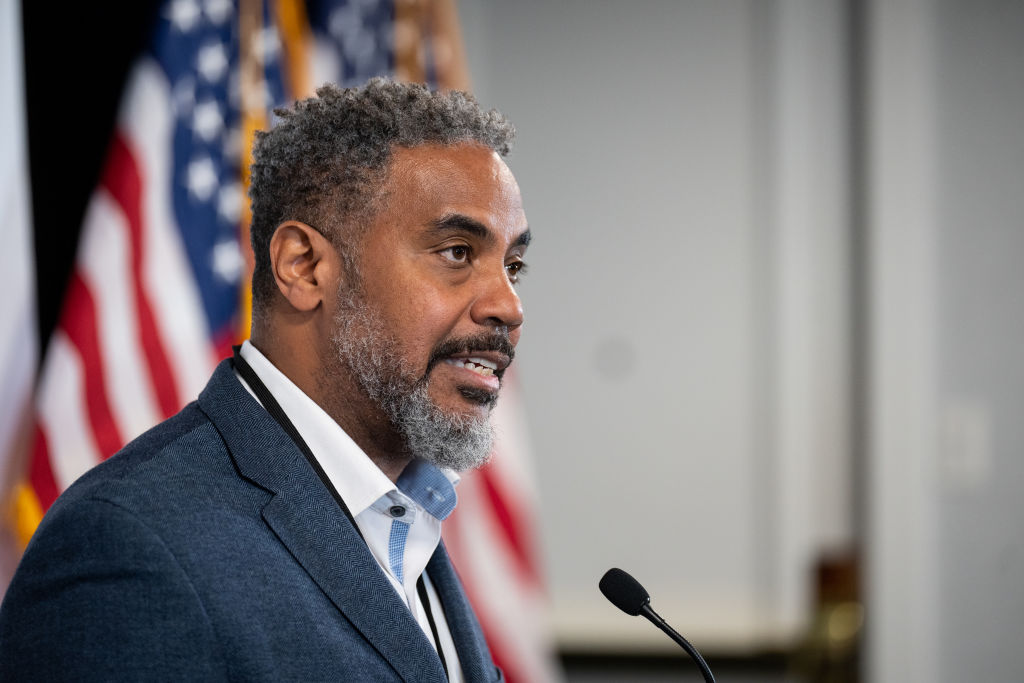
September 9, 2024
Black Caucus Releases New DEI Guidelines, Calls On Corporations To Continue Efforts Despite Backlash
CBC Chair Rep. Steven Horsford stressed companies are falling victim to 'far-right actors who are attempting to bully corporate America.'
The Congressional Black Caucus (CBC) has released a new diversity, equity, and inclusion (DEI) report aimed at guiding corporations in improving workplace policies and urging them to reaffirm their commitment to racial justice, according to the Associated Press.
The report, “What Good Looks Like: A Corporate Accountability Report on Diversity, Equity, and Inclusion,” was released on Sept. 9. It asserts that workplace DEI policies remain legal despite the Supreme Court’s 2023 ruling against affirmative action in college admissions. The report advocates for expanding these policies to foster economic prosperity and address racial wealth disparities.
“In the wake of the death of George Floyd, corporations pledged $50 billion to racial equity and strengthening DEI policies,” Rep. Steven Horsford (D-Nev.), chair of the Congressional Black Caucus, said in the report.
“DEI is now under attack, but the response from corporate America has been overwhelming.”
The guidelines come after the caucus reached out to various Fortune 500 companies, academics, and business analysts to determine ways for them to promote DEI and Black economic mobility during 2024’s shaky political and legal environment. In the report, the caucus cited corporations that have faced backlash from conservative activists and lawmakers for implementing such policies, such as farm supply corporation Tractor Supply Co.
In June 2024, Tractor Supply announced it was cutting all diversity, equity, and inclusion roles, eliminating sponsorships of “non-business activities” like Pride festivals, and goals to diminish carbon emissions. The National Black Farmers Association (NBFA) and critics called out the company and its leader, Hal Lawton, for the decision.
“I was appalled by the decision,” NBFA’s President and Founder, John Boyd Jr., said in a statement at the time.
“I see this as rolling back the clock with race relations—because the country is so divided on race, especially in rural America.”
According to U.S. News & World Report, the CBC study outlines 12 categories where corporations can zone in on expanding DEI efforts and help close the gap within racial wealth. Guidance for workplace culture, data disaggregation, talent opportunities, retention rates, pay equity, and procurement policies are just some of the issues identified in the study.
Corporations were invited to “collaborate legislatively” to develop laws that “create perpetual accountability for corporate America, help close this massive gap of inequality, and support the values of our caucus,” Horsford pointed out, adding that the high court’s historic ruling does not correlate with corporate DEI policies. Hence, the policies should still be in place.
He said corporations shouldn’t fall victim to “far-right actors who are attempting to bully corporate America.”
Fifty CEOs met directly with the CBC, while other companies responded with letters and questionnaires from lawmakers.
“There is nothing under the law that is illegal or unconstitutional about corporations advancing DEI policies. I commend the corporations that answered our call,” Horsford stressed. “We are now giving the roadmap for what good looks like.”
RELATED CONTENT: Ford Joins Other Major American Companies In Scaling Back DEI Efforts